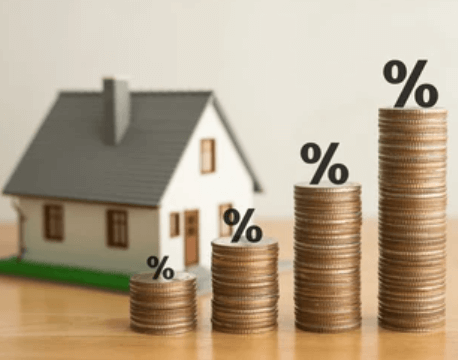When homeowners receive their mortgage statements and notice an unexpected increase, questions naturally arise. “Why did my mortgage went up?” is a query many seek to answer, as it can stem from various factors, including interest rate changes, property tax adjustments, or shifts in insurance premiums. Read on as we delve into the reasons behind rising mortgage payments, providing insights and clarity to help you better understand “why did my mortgage went up” and navigate your financial decisions accordingly.
Understanding why mortgage payments increase is crucial for effective financial management in real estate investment. Investors like Steve Daria and Joleigh closely monitor market trends and financial indicators to anticipate shifts that could affect their mortgage obligations. They can make strategic choices to safeguard their investments and adjust to evolving circumstances through staying well-informed.
Factors Influencing Mortgage Rate Increases
Why did my mortgage went up? Mortgage rates can change due to various economic conditions, and it’s crucial to stay informed about these influencing factors.
Economic Conditions
The health of the national economy plays a pivotal role in determining “my mortgage went up.”
When the economy is stable, with low unemployment and robust consumer spending, interest rates often rise.
This is because lenders expect inflation to increase, prompting them to raise rates to maintain profitability.
Inflation Trends
Inflation is the general rise in prices over time, and it affects how much your money can buy.
When inflation increases, lenders adjust their rates to ensure that the returns on their loans outpace inflation, which can lead to higher mortgage payments for borrowers.

Federal Reserve Policies
The Federal Reserve doesn’t directly set mortgage rates, but its policies and actions influence them.
When the Fed sets higher interest rates for banks, these institutions pass on the costs to borrowers by increasing mortgage rates.
Understanding Fixed vs. Variable Rates
Knowing the difference between fixed and variable mortgage rates is essential for anyone who has experienced the “my mortgage went up” dilemma.
Fixed-Rate Mortgages
Fixed-rate mortgages offer stability because the interest rate is constant throughout the period of the loan.
While this protects against sudden rate hikes, it might mean missing out on savings when rates decrease.
Variable-Rate Mortgages
Variable-rate mortgages, also called as adjustable-rate mortgages (ARMs), have interest fees that can change over time according to market conditions.
Initially, these rates may be lower than fixed rates, but they come with the risk of rising significantly, which could surprise borrowers with higher payments.
Choosing the Right Option
Thinking about between fixed and variable rates depends on your financial situation and risk tolerance.
If you’re comfortable with potential fluctuations and plan to move soon, a variable rate might be suitable.
However, if you prefer predictability, a fixed rate could be the better choice.
Get An Offer Today, Sell In A Matter Of Days…
Strategies to Manage Rising Mortgage Rates
It’s crucial to have strategies in place to manage the financial strain of increasing mortgage rates.
Refinancing Your Mortgage
Refinancing involves replacing your current mortgage with a new one, often at a lower interest rate.
This can lessen monthly payments and save money over the life of the loan.
However, consider the costs associated with refinancing, such as application fees and closing costs.
Making Extra Payments
Paying more than the need monthly payment can decrease the principal balance and the overall interest paid over the life of the loan.
Even small additional settlements can make a significant difference over time.
Extending the Mortgage Term
If monthly payments become unmanageable, extending the term of the mortgage could lower them.
Keep in mind that this might result in paying more interest over the longer term.
Tips for Navigating Mortgage Rate Changes
Being proactive can help you handle the effects of “my mortgage went up” more effectively.
Stay Informed
Regularly review financial news and updates about interest rates.
Understanding market trends can prepare you for possible changes and help you make informed decisions.
Consult a Financial Advisor
A financial advisor can supply personalized guidance based on your unique financial situation.
They can suggest strategies to mitigate the impact of rising mortgage rates and improve your overall financial health.
Reevaluate Your Budget
Reassessing your budget is essential when mortgage rates rise.
Identify areas where you can cut back on expenses to accommodate higher payments.

The Importance of Being Proactive
Being proactive about mortgage rate increases can prevent financial strain and support long-term investment success.
Monitor Economic Indicators
Keeping an eye on economic signals, such as employment rates, inflation, and Federal Reserve announcements, can give you a sense of where mortgage rates might be headed.
Review Your Loan Options Regularly
Regularly reviewing your loan options can help you ensure you’re getting the best deal available.
Don’t hesitate to renegotiate terms with your lender if needed.
Consider Long-Term Financial Goals
When considering your mortgage, it’s crucial to align your decisions with your long-term financial goals to ensure they support your broader objectives.
For instance, if you’re aiming to expand your property portfolio, a mortgage with favorable terms can provide the flexibility and financial leverage needed for future investments.
On the other hand, if your focus is on saving for retirement, you might prioritize paying down your mortgage more aggressively to reduce overall debt and free up resources for retirement savings.
Frequently Asked Questions
To further assist your understanding, here are some frequently asked questions regarding “Why did my mortgage went up.”
Why did my mortgage went up if I have a fixed-rate mortgage?
Even with a fixed mortgage, your monthly payments might increase due to changes in property taxes or homeowner’s insurance premiums.
These expenses are often included in an escrow account, which the lender uses to settle these costs on your behalf.
If your property taxes or insurance premiums grow, your lender will adjust your escrow settlements to cover the higher amounts, resulting in a higher overall monthly payment.
Can I switch from a variable to a fixed-rate mortgage?
Yes, you can refinance your existing account to change from a variable to a fixed-rate mortgage.
This process involves taking out a new mortgage to pay off the existing one, with the new mortgage having a fixed interest rate.
Refinancing can provide more stability and predictability in your payments by locking in a consistent interest rate, protecting you from future rate increases.
How often can variable rates change?
Variable rates can change based on the terms specified in your mortgage contract, which dictates how often adjustments can occur.
Some variable-rate mortgages may have annual adjustments, while others could change every six months or even quarterly.
The frequency of these changes depends on the index used to determine the rate and the margin applied by your lender.
Conclusion
Understanding why “my mortgage went up” and learning how to manage changes in mortgage rates is essential for land sellers, property sellers, real estate investors, house buyers, and land buyers. By staying informed and adopting strategic measures, you can secure your investments and maintain financial stability.
**NOTICE: Please note that the content presented in this post is intended solely for informational and educational purposes. It should not be construed as legal or financial advice or relied upon as a replacement for consultation with a qualified attorney or CPA. For specific guidance on legal or financial matters, readers are encouraged to seek professional assistance from an attorney, CPA, or other appropriate professional regarding the subject matter.

